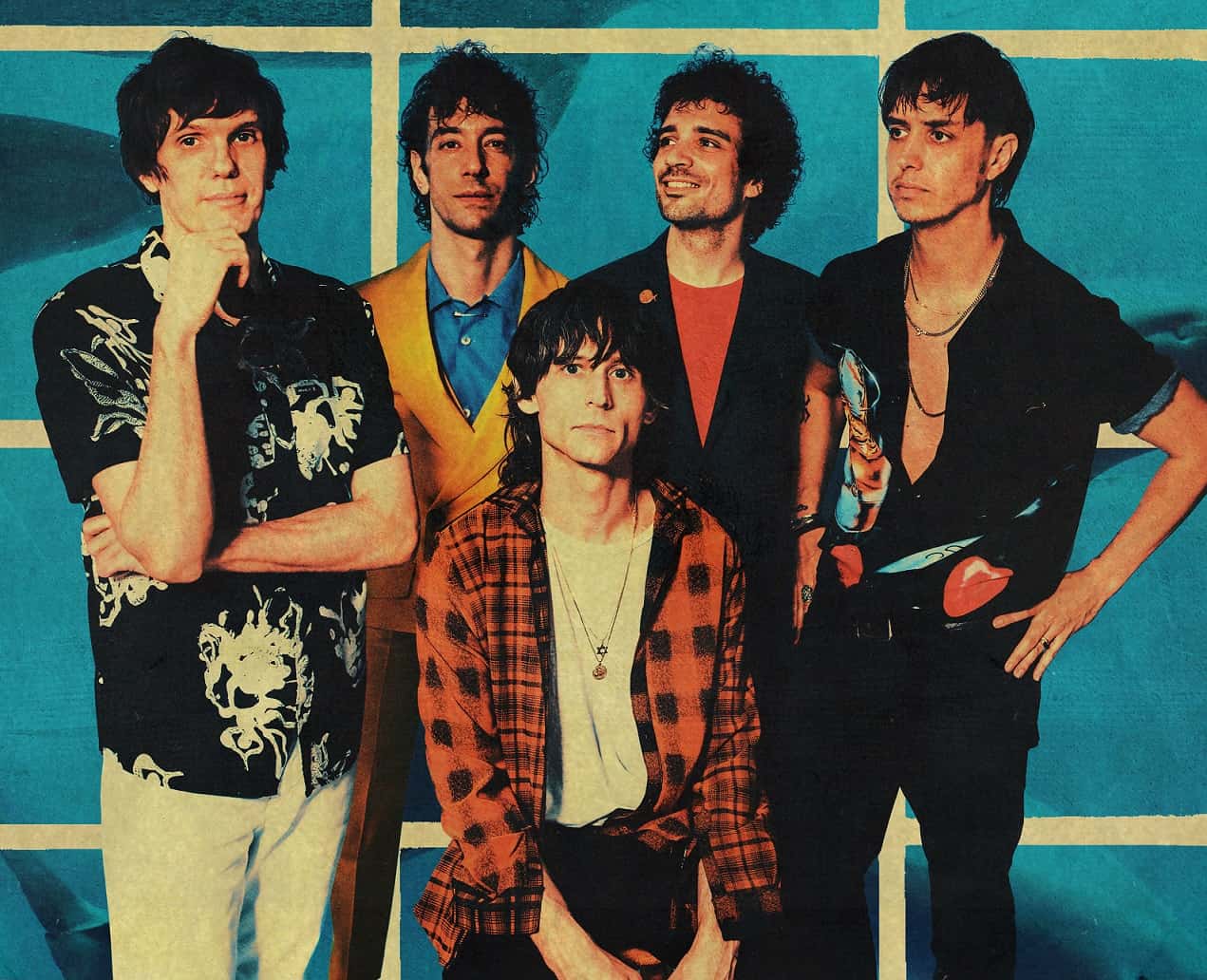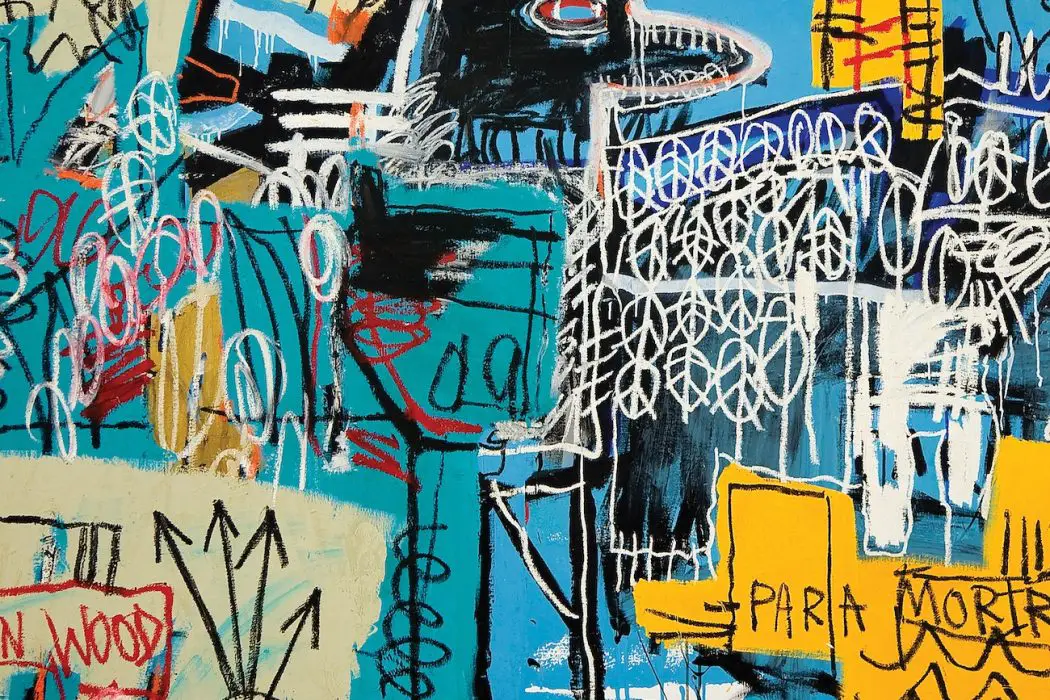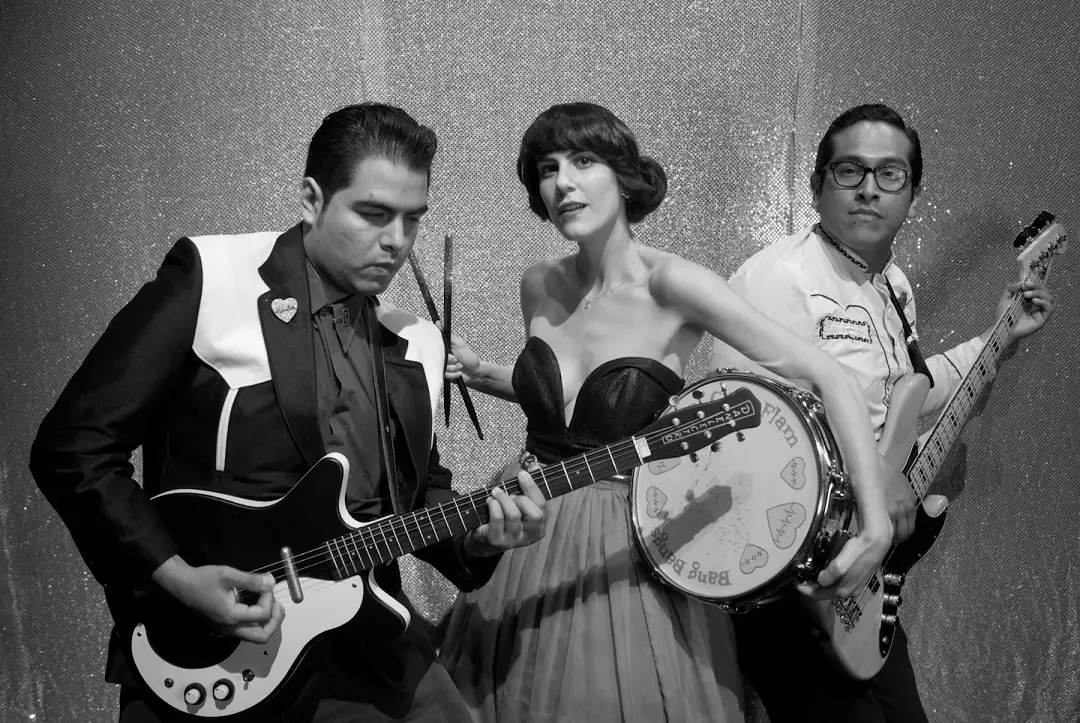Atwood Magazine’s writers discuss the sound and spirit of The Strokes’ long-awaited sixth album ‘The New Abnormal’, a return to form whose embrace of their classic, raw rock n’ roll identity reignites an old flame with a refreshing twist.
Featured here are Atwood Magazine’s writers Lexi Lane, Bethan Harper, Francesca Rose, James Crowley, Matthew Dunn, Josh Weiner, and Mitch Mosk!

— —
For starters, how did you get into The Strokes, and what has attracted you to this band over the years?
Mitch: I wonder how 2000-era The Strokes would react to knowing that 2020-era The Strokes are one of the biggest names in rock n’ roll. I like to think that they would have mixed feelings: I envision them being torn between shunning their worldwide acclaim like Kurt Cobain, and leaning into their success like everyone else. The Strokes were kind of the “cult favorite” band; the epitome of cool; the badass rough n’ tumble underdogs; the definition of “rock n’ roll” in 2001. I, on the other hand, was nine years old when Is This It released – a little too young to get that rebel attitude – but I did get into The Strokes half a decade later, and when that happened, I went all-in FAST. After obsessing over the catchy licks and raw vocals pouring out of “Reptilia,” teenaged Mitch – let’s say I was 15, and the year 2007 – dove headfirst into The Strokes’ catalog. I fell hard for Is This It – I think it’s a perfect album – and yet I have so many memories of listening to Room on Fire front-to-back again and again during my 40-minute commutes to high school during my junior and senior years; it’s the perfect sophomore follow-up… And then there’s First Impressions of Earth, the ambitious hour-long third offering that just sealed the band’s fate!
Yes, I’m a Strokes traditionalist: I live for the first three records even still, and personally I wasn’t moved by either Angles or Comedown Machine. I really enjoyed 2016’s Future Present Past EP because it felt fresh, yet kind of throwback-y – and that’s what I love about the band’s newest music as well. I hate to think that I’m dismissive of any artist’s material, because I love The Strokes’ music and aesthetic so much. For me, The New Abnormal is the fourth great Strokes record: An older, more mature expression of unapologetic cool, the once-“underground” badass cult favorites in black leather still rocking that black leather, but now writing and recording from a new perspective, twenty years into an illustrious, legendary career. It’s refreshingly raw rock n’ roll full of dynamic riffs, slick melodies, and passionate in-your-face singing; basically, the punch in the face I’ve been waiting for since 2007.
Lexi: Surprisingly, a little late and not on my own. There was a kid Liam that I had a few classes with in high school who was really into both The Strokes and The Voidz, so I guess I got a little into them after that. Yet, it wasn’t until I ended up reading Lizzy Goodman’s Meet Me In the Bathroom that I actually dug more into their records in full. Even though I started listening kind of at an older age, the music still feels nostalgic, though I’m not fully sure what towards.
Bethan: I don’t think I remember exactly when I became interested in The Strokes’ music. I can’t remember hearing them for the first time but, it’s almost as though the Last Nite melody has been imprinted in my mind forever. If I had to hazard a guess, I would say I started listening to The Strokes at about 14 or 15. Since then, their effortlessly nostalgic sound that makes me feel as though I’m living in a coming of age film is what strikes a chord with me every single time they release a new record.
Francesca: I got into The Strokes in 2008 as a young teen. I can’t remember the exact moment I discovered them but I remember becoming rapidly obsessed. I was enamoured by their coolness, found Julian’s heavenly voice the ultimate comfort during tough times at school, and would literally spend hours watching videos of them on Youtube. My neighbour (who’s a lot younger than me and so was easily influenced by my interests) and I ended up memorizing most of the words to their ‘In Transit’ movie- something I realized when revisiting it years later. Over the years, they’ve just been a natural part of me and I’ll go through periods of increased affection.
James: The Strokes have been a force since before I started paying attention to music. I probably started listening when I started getting into more alt/indie rock like Radiohead in 10th or 11th grade. My love was reignited for the band when I read Meet Me in the Bathroom in 2017, but I have the strongest connection with Is This It?
Matt: The first time I heard any Strokes song was on Guitar Hero 3 and it was “Reptilia”! (I memorized the progression and eventually was able to complete it with my eyes closed). The track incessantly played in my head with The Strokes’ recognizable guitar tone and it eventually led to me exploring their discography in the 8th grade. Alongside Vampire Weekend they were among my earliest divergence into the Alternative music world.
Josh: Back in the day, I picked up the August 2014 edition of GQ, mainly out of the joy of seeing that my boy Kanye was featured on the cover and that My Beautiful Dark Twisted Fantasy had rightfully been ranked as the greatest album of the 21st century thus far. But lo and behold, what was sitting right below at #2 on that list but Is This It by the Strokes? And it had even been described as “the album [that] saved rock for millennials!” That much inspired me to give Is This It a listen, and since then I’ve kept an open mind to the Strokes, which in turn inspired me to jump in on this roundtable.

The Strokes have grown considerably throughout the past two decades; how have you received their changing styles and sounds?
Bethan: I once heard someone say that when an audience hears new music from one of their favourite artists, they want to feel both at home and surprised at the same time. That sentiment perfectly explains how I’ve felt about The Strokes over the years. ‘Is This It’ and ‘Room On Fire’ are quintessentially The Strokes, and while other projects like ‘Angles’ experimented with new approaches, for better or for worse I’ve always felt at home with The Strokes’ music (which I’m sure Julian Casablancas would hate). The New Abnormal continues that trend, allowing me to feel comfortable and secure, but still offering a new sonic experience that at times surprised me.
Francesca: On a personal level, some things have been received with less interest than others- Such as Comedown Machine, which didn’t get me that excited at the time- but I’m always appreciative of their presence. From a more analytical perspective, their experimentations with sound is just natural for them given their indifference to expectations. As they all have their own individual projects and Julian’s influences when it comes to making music is really open-minded, to have subtle shifts in their collective mindset as The Strokes is obviously just going to be a natural thing that keeps them motivated. While their first three albums are (like Bethan says) quintessentially The Strokes, it’s important not to keep things too samey all of the time.
James: I’ll check out the others, but I really only live with Is This It?
Matt: The growth of The Strokes is a welcomed change. I think for any band to exist as long as they have a change in scenery is needed. Be it Julian’s side project The Voidz, or even some his solo work for that matter, it is important to keep things fresh even if they do not necessarily land with all of the groups prior fans. I think about Arctic Monkeys’ latest project Tranquility Base Hotel & Casino in that same breath. It subverted expectations, and while maybe not to the liking of some, it allows for them to stay present.
Josh: I don’t exactly have their whole catalogue memorized, but it seems like they’ve included more computerized sounds in their music these days, as opposed to their earlier stuff which consisted much more of purely traditional instrumentation. I guess that’s the 21st Century music industry in a nutshell for ya.
What was your reaction to The New Abnormal upon first listen?
Bethan: I had been listening to each single as they were released on the run-up to the album: “At The Door” had already pleasantly surprised me with its celestial aura, and “Bad Decisions” made me dance in the same way “Last Nite” always does. For me, they had already reached the sweet spot of familiarity and new beginnings, and listening to the album in full for the first time cemented those thoughts. The New Abnormal felt more honest from the first listen, which was immediately refreshing, but it still retains The Strokes’ classic passive aggression that I so love.
Francesca: Ok so for some bizarre reason I missed the lead-up to the album. I was aware of “Bad Decisions” (which was a track that could instantly be replayed again and again) but when The New Abnormal came out it kind of leaped out at me from nowhere. I didn’t really have any expectations and didn’t think that much about it before going in, which is why it had such an impact on me. Opening track “The Adults are Talking” brought me a rush of affection that just continued throughout. It’s nostalgic, tapping in to the classic Strokes sound, but also playful in places. And I think that the overall feeling of comfort that the album supplies is really important right now. This is intensified by their accompanying ‘5guys talking about things they know nothing about’ videos. Seeing them interacting together just brings so much joy to my heart and I’m sure it’s the same for all fans.
James: I was psyched on lead up. The band’s performance at a Bernie Sanders rally was electrifying. “Bad Decisions” and “Brooklyn Bridge to Quarantine” (which is my favorite track on the album) were great, but I was a little underwhelmed in my first few listens. A few songs were fun, but nothing really stuck out to me.
Matt: On first listen I did not care for it… at all! I’m happy to say that over time my opinion has changed, but, when you have a band as massive as The Strokes I think that myself (and perhaps some others) hold expectations to a rather high end. It becomes almost impossible to meet. Two of the three singles that lead up to the album failed to really strike a chord with me. Something about the synths just felt off.
Josh: I listened to The New Abnormal for the first time while I was out on a 4-hour ride on my newly-repaired bicycle, which was the first time I’d been able to go out on such a lengthy excursion since quarantine began. I thought it was a lively, energetic record that fit in well in that particular context, and even in lesser contexts (i.e. being stuck at home once again) it’s proven to be an enjoyable album upon further listens.
How does The New Abnormal compare to previous records?
Bethan: I think it captures a lot of the magic that the first two records did, much more so than First Impressions of Earth, Angles, or Comedown Machine. While it captures their magic, The New Abnormal doesn’t feel as groundbreaking as Is This It or Room On Fire did, but it doesn’t need to. I could listen to The New Abnormal over and over, and while First Impressions of Earth, Angles, and Comedown Machine all have some great tracks, I couldn’t put those albums on shuffle.
Lexi: I agree. It feels like a return to form reminiscent of their earlier records that made people fall in love with them.
Francesca: While the first two records hold the ‘magic’, I’d like to disagree with Bethan and say First Impressions of Earth is also there. Maybe it’s because when I discovered the band it was after those three records so I’ve always considered them a collective and everything after has kind of been the ‘newer’ periods, the one that I’ve actually witnessed in real time.
I kind of look back at their 2016 EP Future Present and Past in a new context now, where “Drag Queen” is the present- with its scuzzy groove and more experimental vocals- and “Threat of Joy” is the obvious past. “Oblivius”, with its recognizable tropes in pre-chorus and chorus and additional touches throughout, is the future. The New Abnormal is kind of like that – familiar but also with further additional touches in the incorporation of synths etc.
Mitch: Frankie, you nailed it. The New Abnormal is The Strokes’ return to form – an embrace of the sonic themes and lyrical motifs that helped us fall in love with them the first time around. It’s unassuming and mature – a new kind of “raw rock” that, in my opinion, re-ignites the flame. I can’t imagine the number of songs that were thrown out, and the unfinished ideas that were lost in the process of creating this nine-track experience, but damn it, The Strokes did it – they rediscovered that magic, and they’ve refashioned it for 2020. This isn’t back-to-basics; it’s a return, with a twist!
James: The New Abnormal doesn’t hold a candle to Is This It or even Room on Fire, but it’s an improvement on Angles and Comedown Machine. I feel like Abnormal is a breath of fresh air that captures the spirit of those first two albums, where the more recent records sound like a band resting on their laurels, putting out albums for the sake of putting out albums.
Matt: It is really hard to compare this latest record with their past works. At first glance I think many would, and at least critically have, placed it on the low-end of their musical endeavors. The New Abnormal has yet to truly have time to breathe though, and I can’t help but wonder if it will find itself regarded as a better project the more fans and critics let it sink in and mesh with the rest of The Strokes’ discography.
Josh: On Metacritic, The New Abnormal earned an average rating of 75/100, which, coincidentally, is also what the Strokes’ seven albums have all been rated on average. I’ll take that as meaning that The New Abnormal is just as good as the rest of the band’s catalogue. Given that this is their first album in seven years, that’s a positive sign that not too much rust accumulated during their lengthy hiatus.
What song or songs stand out the most to you on the album, and why?
Lexi: Might be an odder choice, but I really enjoy the ending track “Ode To The Mets”. It reminds me of seeing them on New Year’s Eve, when concerts were still a thing. I enjoy how Julian’s vocals are presented in the track, plus the “Drums please, Fab” part. Feels like a very fitting Strokes song IMO.
Bethan: This record has a few stand out tracks for me, the most obvious being Bad Decisions. The track is unashamedly similar to Billy Idol’s Dancing With Myself (a song that’s always sure to hype me up) and delivers the same energy and excitement that Someday, Last Nite, and 12:51 evoke in me. I’d say that At The Door and The Adults Are Talking are also standout moments. At The Door has an incredible stillness that, in my opinion, is extremely difficult to pull off successfully. Whereas The Adults Are Talking has incredible riffs built into the middle of the track, and Casablancas’ falsetto towards the end takes a tone that impressed me more than it ever has before.
Francesca: “The Adults are Talking” is an explosive opener. “Ode to the Mets” is super sweet, especially as a closer, and- yeah- that “Drums please, Fab” is fun. “Brooklyn Bridge to Chorus” was also stuck in my head many days after. The chorus with the lines ‘I want new friends but they don’t want me’: Very relatable.
James: “Brooklyn Bridge to Chorus” is the sort of dystopian pop song that I adore, and “Bad Decisions” has an 80’s new wave sound that’s kind of reminiscent of Modern English. I also really love “Selfless.” It’s kind of warm and fuzzy with a great melody that’s familiar enough, but takes a few enjoyable left turns.
Matt: The vulnerability and honest songwriting (as well as the Robert Smith-esque delivered post-chorus line “we’re dancing on a moonbeam…”) on Brooklyn Bridge to Chorus has stuck with me more than anything else on this record. I think there was certainly a new-wave, 80’s-post-punk inspired sound on this record. Sort of a resurgence of old trends showing the cyclical nature of music.
Josh: I’ll join the others here in praising “Brooklyn Bridge to Chorus.” I thought that was a really cool song.
What, if any, risks did The Strokes seem to take in the production of this new album?
Bethan: I’m not sure I can see any true ‘risks’ taken on this record. Some new production styles, sure, but risks? I don’t think so. The New Abnormal is pleasantly familiar, and it’s sure to feel like home for most fans of The Strokes. ‘At The Door’ is probably the biggest risk that The Strokes took on The New Abnormal; it’s synth-laden and delightfully languorous, but at points, it still wanders into that familiar space. The New Abnormal proves that The Strokes can still make records that will inevitably go down as classics, but I wouldn’t say it breaks any new ground with notable risks.
Francesca: Yeah I don’t think there were many risks taken with this album but I don’t think that’s a bad thing. Like said, sometimes it’s good to just revisit the predictable. We are in a period where we are stuck in our homes and, as you say Bethan, “it’s sure to feel like home for most fans of The Strokes”. Listening to The New Abnormal genuinely felt like a hug for me and instigated one of those aforementioned periods of obsession.
Mitch: I’m right there with you, Francesca – this felt like a big hug from a familiar friend! The Strokes, I think that was the risk – going back to their roots and embracing feverish those guitar riffs, unassuming attitudes, and impassioned singing.
I love musicians taking risks: To me, that word is synonymous with growth. If you’re not “taking risks,” it’s not that you’re doing it wrong, but you’re playing it safe – and that’s the antithesis of the musical growth, exploration, and experimentation I so love in following an artistry through time. I would say the biggest groundbreaking thing The Strokes did was in making a record that sounds and feels like the proper follow-up to First Impressions of Earth. I can’t imagine what it felt like for the band to switch directions – and maybe for them, this doesn’t feel like a new direction; maybe The New Abnormal was the natural next step from Comedown Machine – but I don’t think so, and I think The Strokes don’t think so, either. After seven years, it’s no longer a “follow-up”; it’s a revival, and the band chose to revive their first style – hence that oh-so-clever and groovy play on words, The New Abnormal.
James: I think embracing synths was the most risk-taking, but they don’t really do anything especially unique with them that makes New Abnormal standout from other artists or past Strokes records. The band really recaptures a sense of excitement that comes with discovering those early records, but that’s not really revolutionary.
Matt: Basquiat inspired cover art and all, I think the only real risk was trying to revitalize past trends in terms of production… I do not believe there to be anything “new” about The New Abnormal, but I appreciate the slight left-turn as far as their sound goes.
Josh: “Risk” doesn’t seem to be such a popular word in this thread. Everyone just seems to be happy to see the Strokes release a record that catered well to their fans. I’m fine with that as well.
Do you feel that there are any political vibes on this album? The Strokes went from actively supporting Bernie Sanders to now backing Joe Biden and saying “it’s not our universal duty” as musicians to take a political stand. Does any of this come across in the music itself?
Bethan: There are some obvious moments of political insight on the record, particularly during the opening track The Adults Are Talking and Eternal Summer. Although, I think the idea that it isn’t a musician’s universal duty to take a political stand is more evident. Commentary on politics and social issues don’t overpower The New Abnormal, which is oddly refreshing. The awareness that some musicians are bringing to political and social issues is incredible, but sometimes consumers want to use music as an escape from the realities of life. The New Abnormal does not avoid political topics, but equally, it doesn’t overwhelm its listeners.
Lexi: There are a few tracks on the record that allude to political themes. However, for a band behind tracks like “New York City Cops” and repeatedly appearing in support of Bernie Sanders prior to pivoting, they have taken a political stand in the past. I think while it’s not their “universal duty”, any band or artist with a dedicated fanbase has a platform that should be used to help incite change — or at least open the discussion about it.
Francesca: The title of the album feels kind of statement-making but there’s nothing really vocalized throughout the album. There’s the random line of ‘stockholders/ same shit, a different life’ in the outro of “The Adults are Talking” and the idea of truth and make-believe in “Eternal Summer” but I didn’t listen to the album and think ‘this is political’.
I feel like if you have opinions on things then you should definitely use your platform to vocalize them but otherwise it shouldn’t necessarily be a duty for musicians to take a stand.
Matt: I agree with Lexi’s sentiment on this one. Over time I have felt more and more strongly about musicians, artists, really anybody taking a political stand. I think it is important, especially now, to exercise our rights as far as engaging in the political realm is to be concerned. Even if the subject matter on The New Abnormal’s tracklist do not overtly make political strides, their appearance alongside Bernie Sanders certainly says enough.
Josh: There are some politically-tinged tracks on The New Abnormal, but it’s not likely to be remembered as the American Idiot of its day. Perhaps the Strokes are more overtly political outside of the studio than within it. Nothing wrong with that.
The Strokes are somewhat known for their reluctance to purposefully meet the expectations of their fans or critics. Do you think that theme runs throughout The New Abnormal?
Bethan: Once Julian Casablancas said, “I know what people wanna hear, and I hate giving it to them.” I think that perfectly sums up the band’s attitude towards meeting expectations, but ironically, it’s also one of the reasons their fans love them. “At The Door” is the perfect example of a track created with no input from external expectations. Although The New Abnormal seems more mature and self-aware on the whole, so maybe The Strokes are enjoying giving their fans what they want this time around.
Francesca: Rather than being revolutionary or instantly influential, The New Abnormal just feels welcomingly comforting – embracing sounds of their past with other touches like the synth-led tracks “At The Door” and “Brooklyn Bridge to Chorus”. What does the album mean to you? Do you feel it has the right balance?
Bethan: I think it’s restorative rather than revolutionary, and sometimes that’s just what you need. It reminds me why I love The Strokes’ classic sound, and tracks like “At The Door” and “Brooklyn Bridge to Chorus” bring the band into a more modern realm of music production, which is refreshing. I do believe they’ve struck the right balance with The New Abnormal.
Mitch: Yeah, like we said earlier it’s a big sonic hug. I didn’t love “At the Door” when I first heard it, and I still don’t – but I get it, and I appreciate it. This is an album, and in that respect, it is best listened to from start-to-finish; when heard in that fashion, everything fits together, and it all works just right. The Strokes take us on a flirtatious journey with their wily guitars and finessed balance of chaos and control – that’s what they always did so well, and now that I think abut it, that’s why The New Abnormal feels so good: It is not an old world, but a new one unto itself with its own quirks and idiosyncrasies that keep us hooked and coming back for more.
Did any moments on the album disappoint? If so, which ones and why?
Bethan: I would say I’m most disappointed by “Why Are Sundays So Depressing?” The song has a strong melancholy opening but, in my opinion, fails to ever take-off. I’m usually a fan of mid-tempo melancholy tracks, but this seems disjointed, and it’s the only track on the album that I skip over.
Francesca: I actually found “Eternal Summer” to be the least memorable. I think it’s the only track that didn’t send weird emotional feelings through my body.
James: Extended songs have been a bit of a bummer throughout listening. Even when I start to enjoy songs like “Not the Same Anymore”, “Eternal Summer” or “At the Door,” they all seem to go on just a little too long. Tightening up the longer songs to match the exciting, punchy songs would be nice.
Matt: Nothing really “disappointed” per se, but the back half felt a little lackluster in my opinion. Still need to give this record more time.
Josh: Since I enjoy the Strokes without being a diehard fan, I can’t really say I was disappointed by this album in any sense. Beyond that, it’s all good music, so what’s there to feel upset about?
What place do you think The New Abnormal holds in The Strokes’ legacy?
Bethan: I think The New Abnormal solidifies their legacy. Critics have been torn over The Strokes since First Impressions of Earth, but everyone seems to agree on two statements, that they’re one of the great bands of the 21st century and they haven’t released a remarkable album since 2003. Every album following Room On Fire has been a frustrating combination of glimmers of genius and lazy disjointed tracks. The New Abnormal has gained more positive reviews than any of their last three albums, and faith in The Strokes has been restored. Fans and critics alike always knew the band had another remarkable record in them, they just needed to get it together, and allow it to happen. The New Abnormal is proof that The Strokes aren’t finished yet.
Francesca: I agree that The New Abnormal solidifies their legacy. The Strokes are eternally relevant, due to the iconic status they hold, and I think this record is great at currently summing them up especially for new generations. Also, there’s been disconnect between members in the past (like with Angles) but with The New Abnormal things feel authentic. It’s in the little details like the “drums please Fab” and the dialogue at the end of “Not The Same Anymore” and the ‘5guys talking…’ videos. I never needed reminding but I do think this album is a reinforcement of the delight the band can give to people.
Mitch: I thought The Strokes’ legacy had already been solidified?! In my opinion, The New Abnormal opens the door to a new era in The Strokes’ legacy – it’s the next generation, an affirmation of the band’s greatness in 2020 rather than a reaffirmation of their greatness in the aughts.
Think about it – Julian Casablancas is now 41 years old. The band’s decision to release a new record at this point in their lives means one of two things: It’s either a swan song finale, or a bold new beginning. Either way, The New Abnormal is for me a reminder that rock n’ roll is alive and thriving in 2020, and for The Strokes it’s a rejuvenating, compelling, and defining return.
James: Is it wrong to say that The New Abnormal will likely be inconsequential? It’s fun, enjoyable, and I’m sure some songs will later be regarded as classic Strokes songs, but The Strokes in 2020 are not The Strokes in 2001. Unless this ends up being the last Strokes record, I think we won’t really discuss it in great detail when another album drops.
Josh: Maybe it’ll be remembered as a “placeholder” record of sorts. One that proves that they are still a talented and capable bunch more than two decades after their initial emergence. That’s nothing to shake a stick at.
— —
:: stream/purchase The New Abnormal here ::
— — — —

Connect with The Strokes on
Facebook, Twitter, Instagram
Discover new music on Atwood Magazine
? © Cult Records
The New Abnormal
an album by The Stroeks









